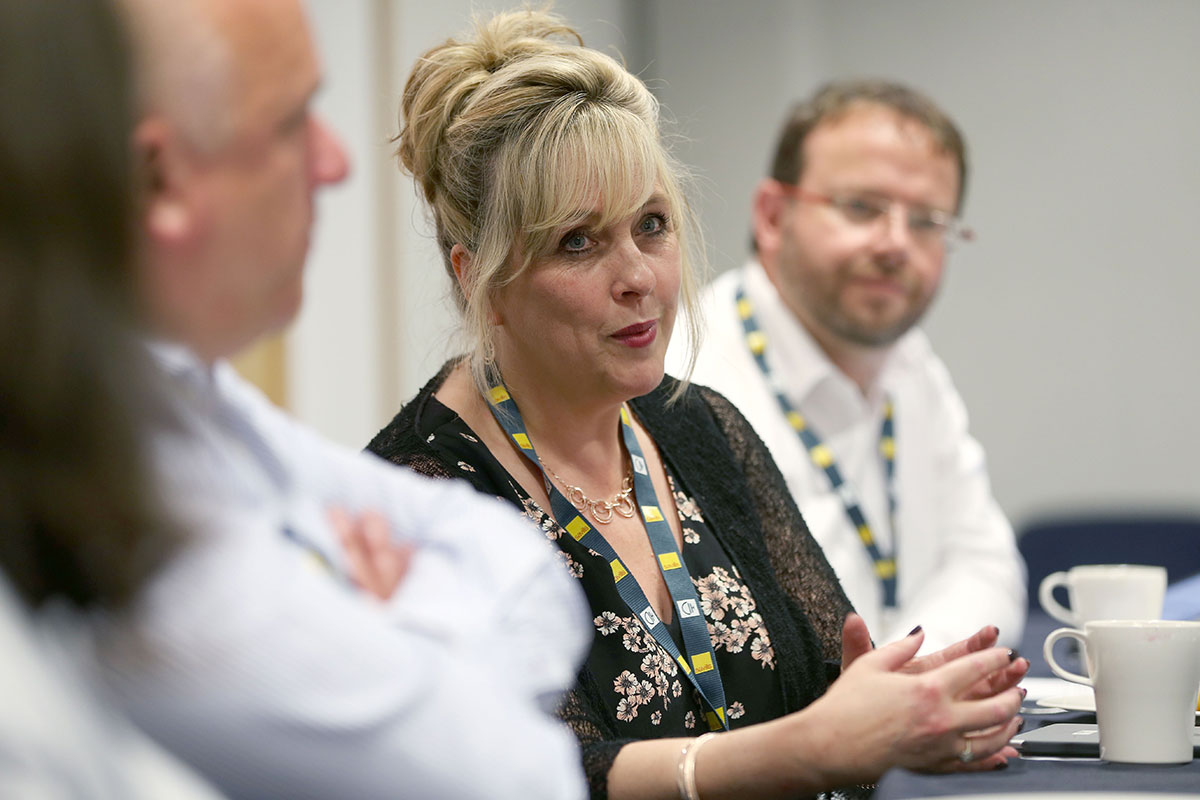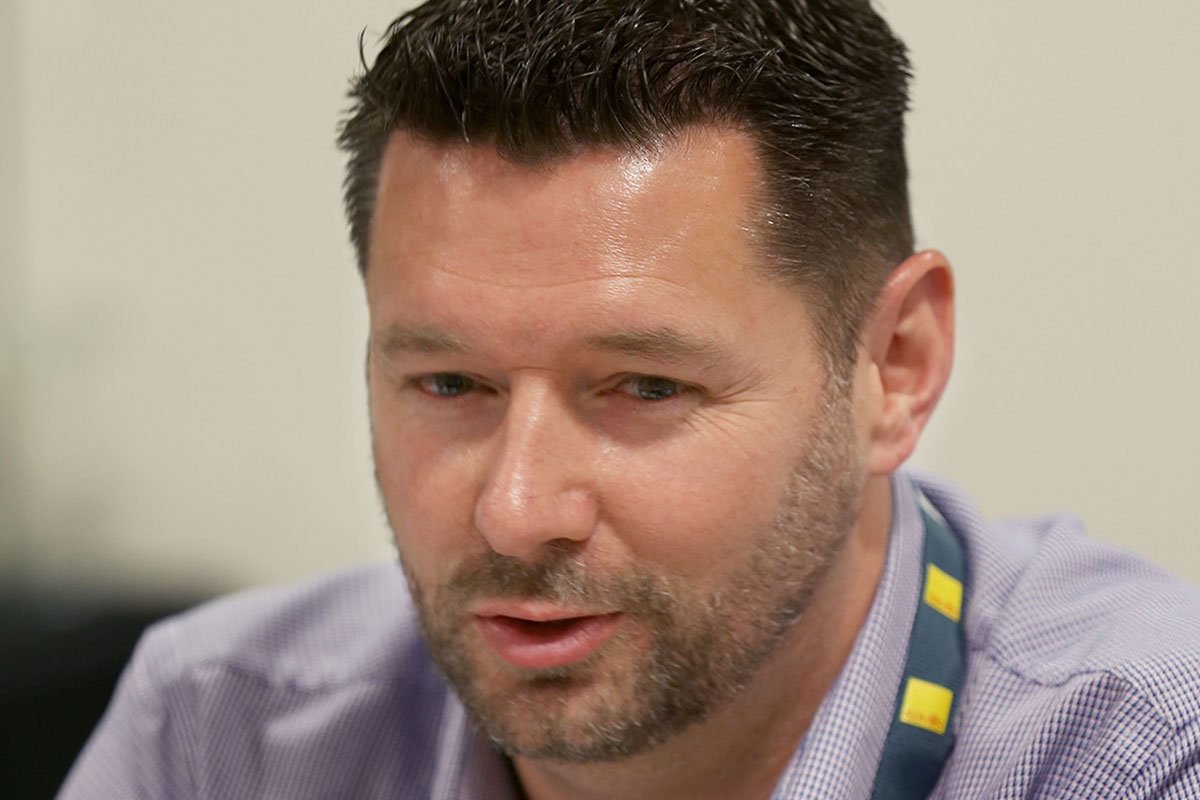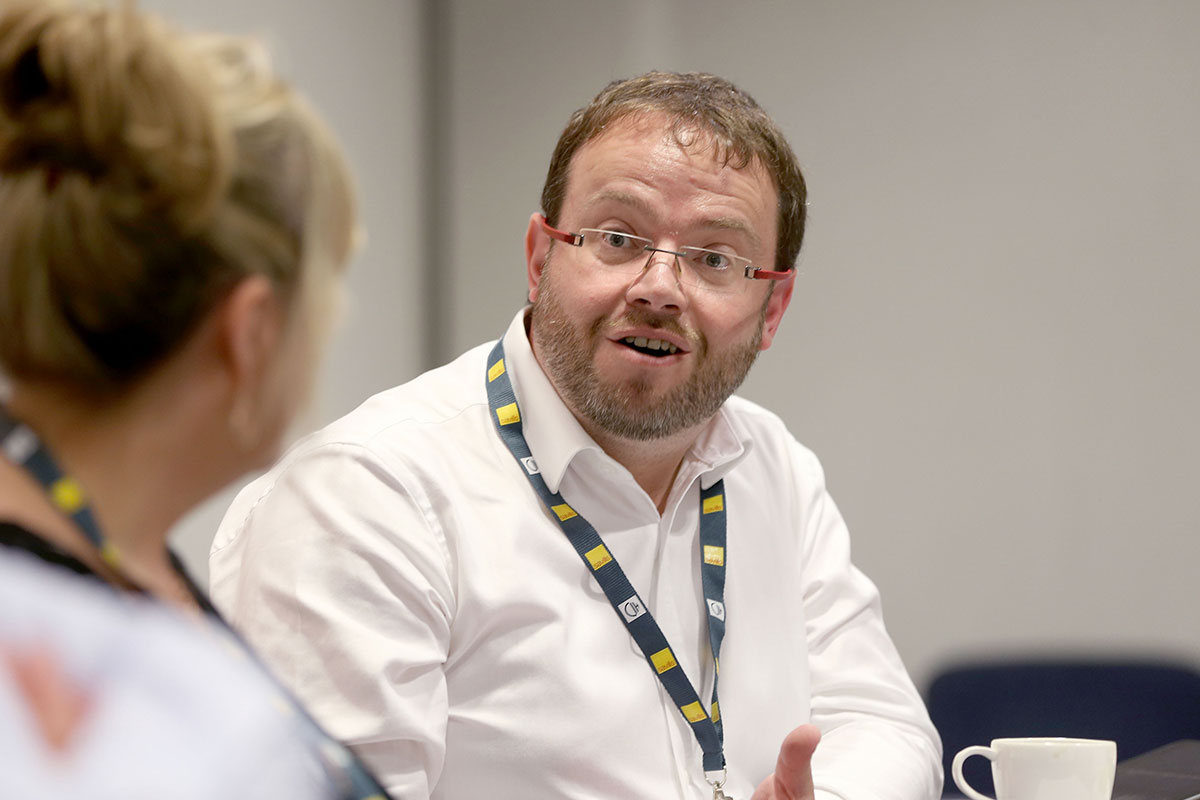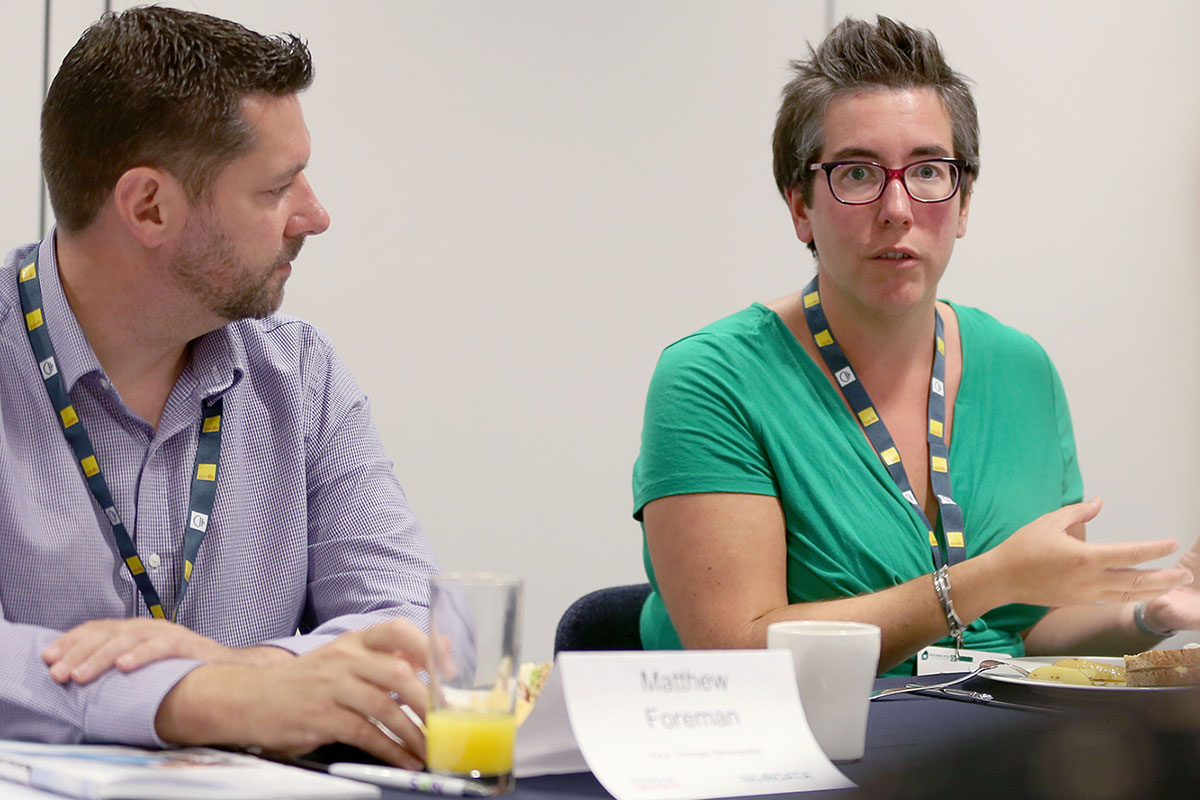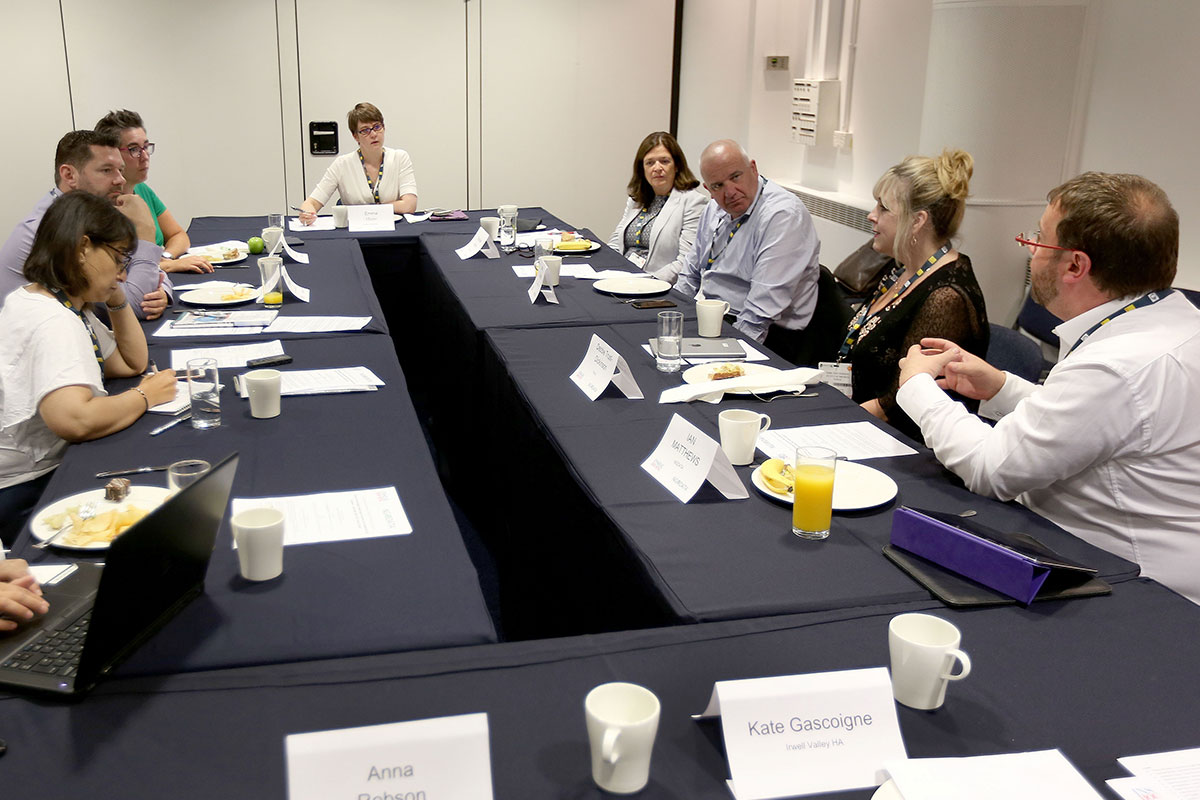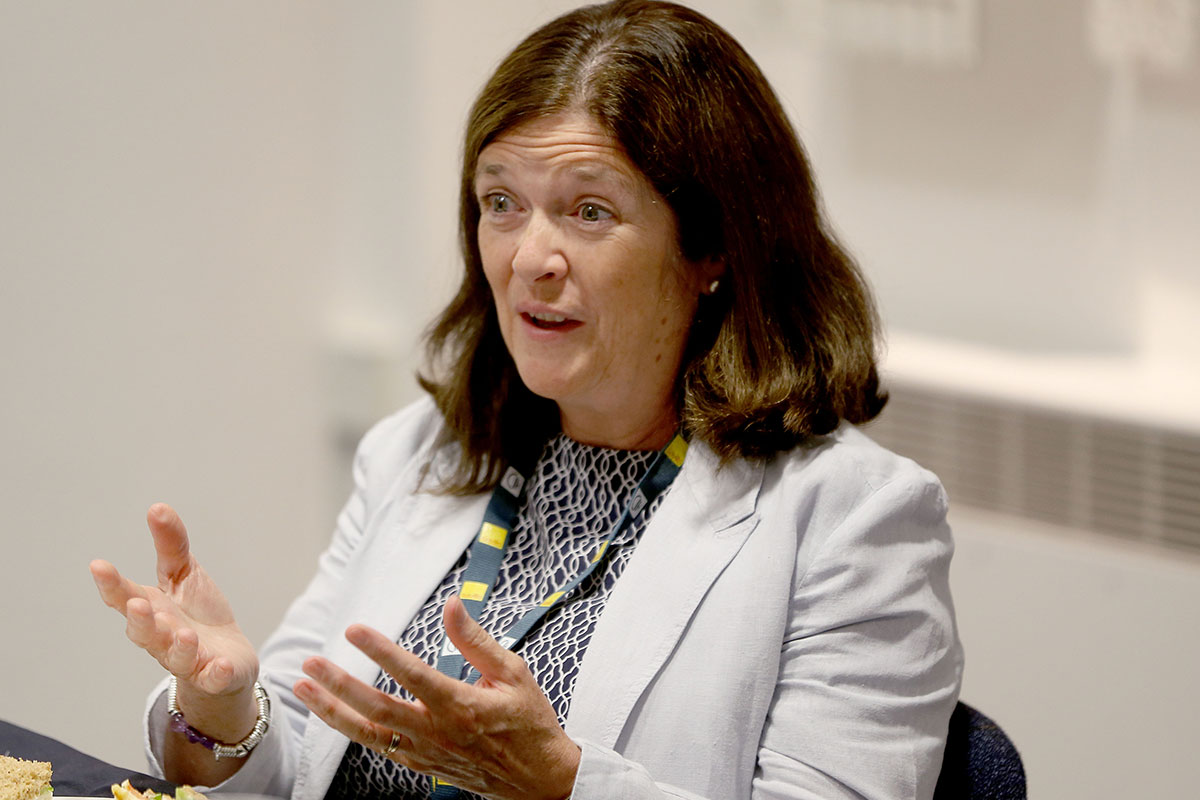Data-driven solutions
Inside Housing and NGDATA bring together sector authorities to discuss how data analysis has the potential to refine their relationships with tenants
Debbie Trust-Dickinson, Director of ICT and transformation, Torus
In association with:

The internet of things is changing the way we live our lives, and is affecting the housing sector as much as any other.
Smart home technologies, such as smart sensors and self-service apps, have the potential to make the landlord and tenant relationship run more smoothly.
The data that is collated allows landlords to identify and respond to the needs of their tenants far more efficiently than ever before, using predictive analytics. But this access to the personal data of their tenants brings its own challenges. In a post-Cambridge Analytica and post-GDPR era, questions are being asked about how this data is being collected and used.
These were some of the issues under discussion at a round table organised by Inside Housing, in partnership with NGDATA, and chaired by editor-in-chief Emma Maier at Housing 2018 in Manchester. It follows on from an earlier session in April looking at how technology is driving change, focusing on how technology is improving outcomes for landlords and tenants, and what the future holds.
Matthew Foreman, Director of customer services, Your Homes Newcastle
A small panel of experts from a diverse selection of organisations are here to discuss the technological solutions they already have in place, and how they are helping to transform their ways of working, as well as the lives of their residents. Furthermore, how are technological advances from outside the sector driving change within it?
Technological support
Lee Sugden is chief executive at Salford-based housing provider Salix Homes. He explains that Salix is currently working on a new type of smart technology called MiiHome that puts sensors in people’s homes using Xbox Kinect technology, allowing a rich set of data to be collected on those most vulnerable and at risk by monitoring their activity. Working in partnership with Salford Royal NHS Foundation Trust, the University of Manchester and the University of Salford, the project is initially being piloted in homes where people have degenerative conditions, as well as in shelter schemes.
“It’s about releasing people through technology, so that we can support those who need help.” - Lee Sugden, chief executive, Salix Homes
“It’s about releasing people through technology so that we can support those who need more help. It really gives a rich set of data to the clinician so they know how to better treat the individual. It’s not so much ‘big brother’ as ‘little guardian’,” he explains.
Ian Matthews, Head of Eccella sales, NGDATA
Rachael Byrne is executive director of new models of care at housing association Home Group, which is partnering with the NHS to provide integrated health, housing and social care. Its Home View programme with Lancashire Care NHS Foundation Trust provides housing for those who no longer need to be in hospital but still require support.
“It’s about the small levels of independence we can create,” she explains. “Talking with families is pivotal. It’s vital for families to feel confident about the things you are putting in place.”
Home Group is also currently working on a programme involving a group of people who have agreed to have their vital signs monitored, which is then linked back to their GP. This, she says, gives the ability to intervene, and to stop something such as a heart attack from happening.
Ms Byrne picks up on the importance of outcomes when introducing any new technology: “The customers who signed up to it loved it, because at the end of the day it’s about protecting a life.”
Lee Sugden, Chief executive, Salix Homes
Debbie Trust-Dickinson, director of ICT and transformation at housing group Torus, adds that “propensity modelling” based on the data and intelligence collected allows the right support to be given to residents where needed. Torus is now tapping into its own data and intelligence to help develop its services: “We’re quite good at developing services that we think people will want, but we want to get to the position where this is evidence-based. In the past, we used external sources of data, but we realised that we’ve got a huge, rich stream of data of our own.”
Torus has invested in a head of data and intelligence role and a head of digital innovation position. The idea is to marry the evidence base and the intelligence with innovation and creativity, she explains, so as to create something that is based on behaviours and actions as opposed to suppositions. “Bringing those two things together can be quite powerful. It’s quite an exciting time for us,” she adds.
“In the past, we used external sources of data, but realised we’ve got a huge, rich stream of data of our own.” - Debbie Trust-Dickinson, director of ICT and transformation, Torus
So, is there a place in this for research organisations such as universities? Ian Matthews, head of Eccella sales at NGDATA, believes that university partnerships are vital. “The University of Surrey is doing amazing things in healthcare; technology that can be used in social housing. You’ve got to take the data and the researcher and put them together,” he says. “That’s pretty much our mission at NGDATA. Let’s take that data and use it to change things in three months, or six months – not three years later, when we’ll give you a report on how things might work.”
Ms Byrne believes that partnering with academics can create better opportunities. Some of the programmes that Home Group is trialling are as a result of working with the NHS, where evidence and the use of data is everything, she says.
Emma Brooker, Customer insight manager, L&Q
Taking assumptions out about its customer base and using appropriate language is also a vital part of getting to the point where the right technology is being provided. “We need to ask the right questions, and make sure we are using the right language. We can’t assume that a certain group of people, such as the elderly, will be less digitally savvy,” says Ms Byrne.
Mr Matthews agrees that segmenting the customer base is not the way forward. “There are some very internet-savvy 80-year-olds out there who are using Skype, Facebook and Amazon.”
Online retailers such as Amazon are also raising the expectations of customers to an extent that cannot yet be met by the housing sector.
“Amazon has dedicated its life to the customer experience,” adds Mr Matthews. “We’ve all got to up our game. You’ve got to put the effort in to drive customer engagement – you can’t just assume that it will happen.”
“A lot of machine learning that you hear about in the press is not yet ready to be used, because it can’t cope with the complexities of human nature,” explains Matthew Foreman, director of customer services at Your Homes Newcastle. “We need good data first, then we need to get consent from the people so they know what you are doing. Then we can start doing the analytics and making decisions.”
“We can’t assume that a certain group of people, like the elderly, will be less digitally savvy.” - Rachael Byrne, executive director of new models of care, Home Group
The panellists pick up on the potential that access to their tenants’ data could unlock, allowing predictions to be made about residents’ needs. Mr Sugden refers to a smart lock that a tech incubator hub in Salford is working on: “We gave an opportunity to organisations based at the hub to pitch to us, and we came across a guy who was trying to invent a smart lock. It really got us thinking about locks. We looked at how much we spend on locks – £50,000-60,000 a year. Why not have smart locks? It would tell us whether someone was in or out. So we wouldn’t turn up for repairs if they weren’t in. It’s about finding ways of exposing yourself to technology. And it’s not new technology. It’s about what does that then enable?”
Building trust around data
While behaviour tracking through evidence clearly brings benefits for landlords, Ms Maier picks up on the public’s nervousness around how their personal data is used. Can a consumer-driven product that uses their data to make a positive difference to their lives help to overcome any concerns they may have about smart technologies?
Ms Trust-Dickinson at Torus acknowledges that behaviour tracking can be incredibly useful to see, for example, how a property is being used. For the organisation as a whole it also gives an insight as to where there is huge demand for a particular service, and where resources need to be directed. “It’s about using your intelligence to drive your data to drive your resources,” she says.
Emma Maier, Editor-in-chief, Inside Housing
She admits that it is a delicate issue and that trust can only be built if the outcome is beneficial and has a value to the customer.
“It comes down to the relationship you’ve got. Do they want you to take on this parental role?” adds Emma Brooker, customer insight manager at L&Q. It may be appropriate in a care and support relationship, but not in what she refers to as a “general needs home”.
Tailor-made
The panellists are in broad agreement that while the data is already there, the trick is knowing how to harness it and learn from it, in order to make residents’ lives easier, by creating personalised services as opposed to the ‘one-size-fits-all approach’ that is prevalent in the sector.
Big data can actually help organisations to treat their customers as individuals, and the way they would want to be treated, says Mr Matthews.
Rachael Byrne, Executive director of new models of care, Home Group
“We’ve got a way to go to get there,” admits Mr Sugden. “It’s not about speed but about creating the service which that individual wants and needs.”
“We need good data first, then we need to get consent from people so they know what you are doing.” - Matthew Foreman, director of customer services, Your Homes Newcastle
“Now that we’ve got the data, we need to use the intelligence to drive decision-making and innovations, using the evidence,” adds Ms Trust-Dickinson. “It’s about taking assumptions out, and putting evidence in, and really using and capitalising on the rich stream of data that we’ve got to deliver better outcomes.”
Mr Foreman agrees: “When we can predict stuff, then we know we’ve cracked it.”
Participants
Emma Brooker
Customer insight manager, L&Q
Rachael Byrne
Executive director of new models of care, Home Group
Matthew Foreman
Director of customer services, Your Homes Newcastle
Emma Maier
Editor-in-chief, Inside Housing
Ian Matthews
Head of Eccella sales, NGDATA
Lee Sugden
Chief executive, Salix Homes
Debbie Trust-Dickinson
Director of ICT and transformation, Torus
